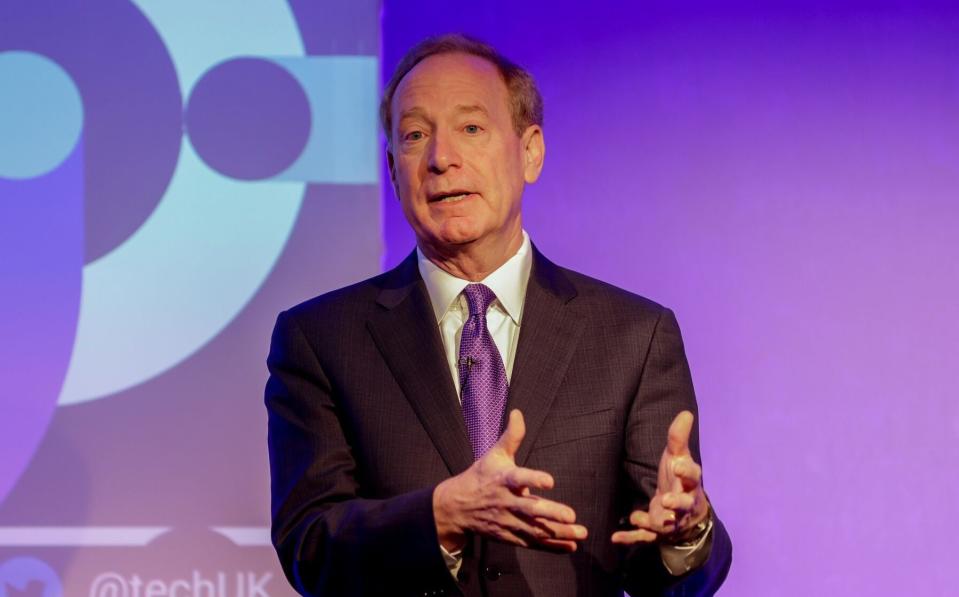Microsoft courts Jeremy Hunt as it seeks ‘solution’ on £55bn Activision deal

Microsoft has signalled it is prepared to compromise on the terms of its $69bn (£55bn) merger with Activision after it was blocked by the UK competition regulator.
Brad Smith, the company’s president, said he was “in search of solutions” to get the merger through as he backed away from attacks on the Competition and Markets Authority (CMA).
Mr Smith met with Chancellor Jeremy Hunt on Tuesday in Downing Street to discuss the situation and is also expected to meet with the CMA later this week.
The tech chief said: “I’m in search of solutions. If regulators have concerns, we want to address them, if there are problems, we want to solve them.
“If the UK wants to impose regulatory requirements that go beyond those in the EU, we want to find ways to fulfil them.”
It marks a significant change in tone from April, when the CMA initially blocked the Activision deal.
At the time, Mr Smith branded the decision “irrational” and said it was “bad for Britain”. He also attacked the CMA as “unaccountable”.
However, on Tuesday he said he was “bullish on the United Kingdom as a great place to live, to learn, to build”.

Mr Hunt has no power to give orders to an independent regulator and Treasury sources insisted the Chancellor had made no concessions to Microsoft during his meeting with Mr Smith.
However, the Chancellor has signalled he is sympathetic to the company’s position. Last month he said competition chiefs needed to “understand their wider responsibilities” for economic growth and encouraging investment.
The CMA blocked Microsoft’s buyout of Activision over fears that the deal would hand the company a dominant position in the emerging cloud gaming market, where players stream titles over the internet.
Officials’ main objection was the amount of control Microsoft will be able to exercise over cloud licensing of games such as Call of Duty, which is developed by Activision and is one of the world’s most popular franchises.
Microsoft already has an extensive portfolio of games it currently offers through its Xbox Community, which boasts around 120 million users per month.
The Redmond, Washington-based company signed a series of 10-year agreements with rivals to address the CMA’s concerns but officials dismissed them, saying they did not go far enough.
The UK took a tougher stance than the EU, which waved the deal through in May. However, US regulators have filed legal proceedings to halt it.
A detailed report from the CMA explaining its decision appears to leave little room for manoeuvre short of Microsoft offering a major compromise, such as giving up the right to control cloud streaming of Activision games.
Microsoft has filed a legal challenge to the CMA’s ruling, which is ongoing.
Microsoft declined to comment beyond highlighting Mr Smith’s public comments. The Treasury also declined to comment.
Writing in The Telegraph in May, the chairman of the CMA, Marcus Bokkerink, said he “fundamentally disagreed” with the idea that regulatory action harmed overseas investment in the UK.
